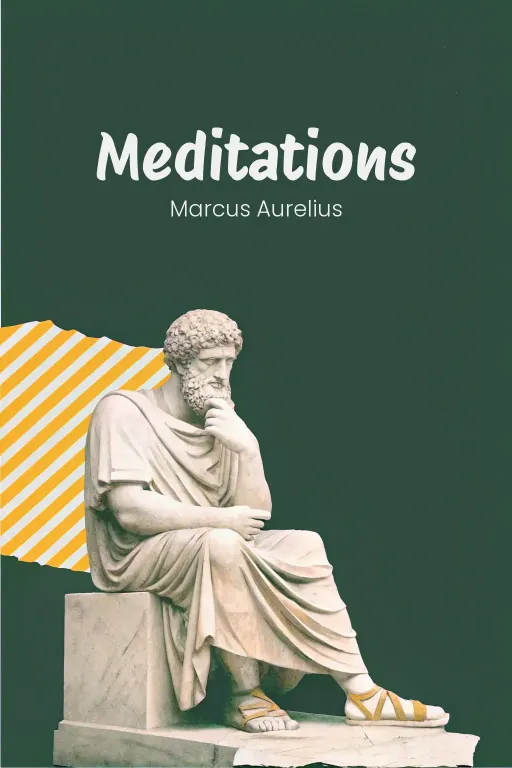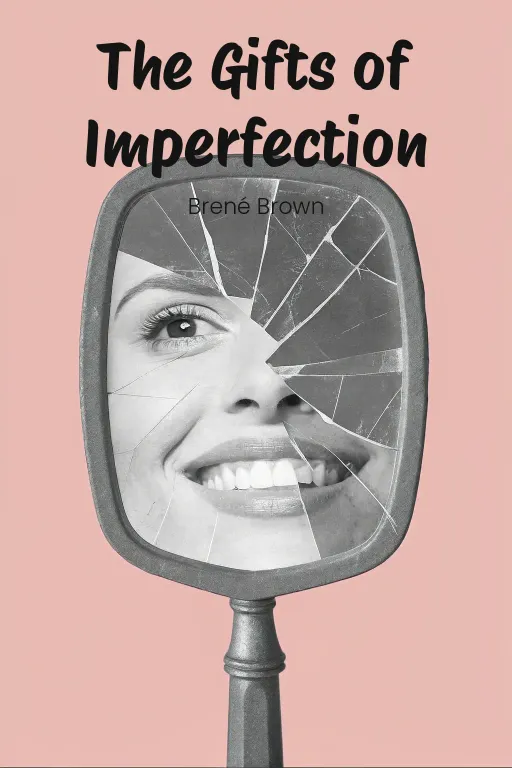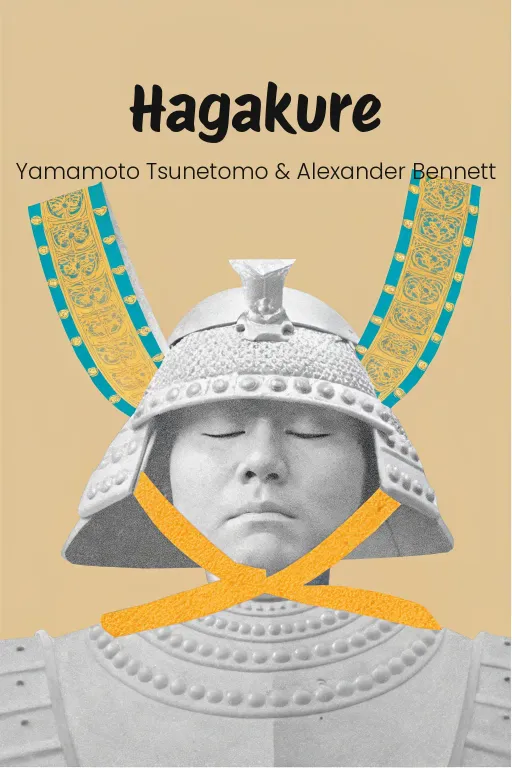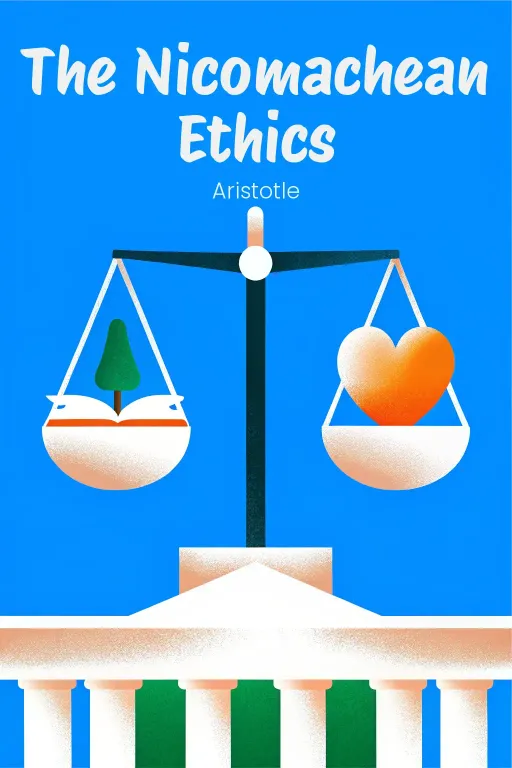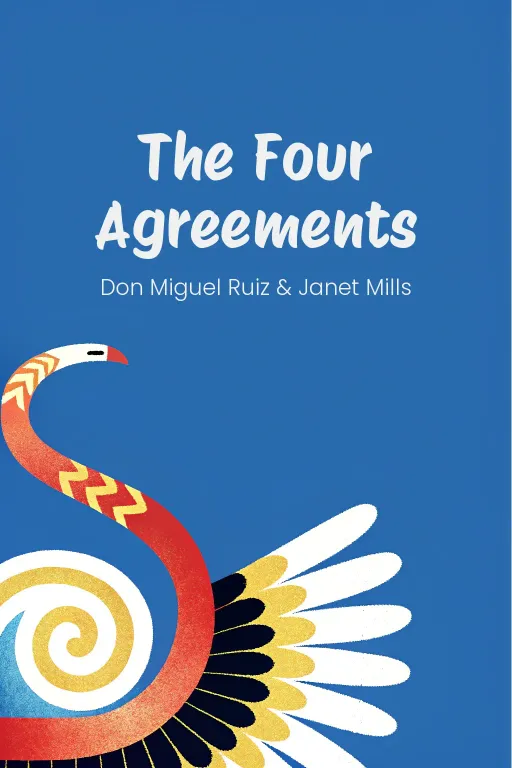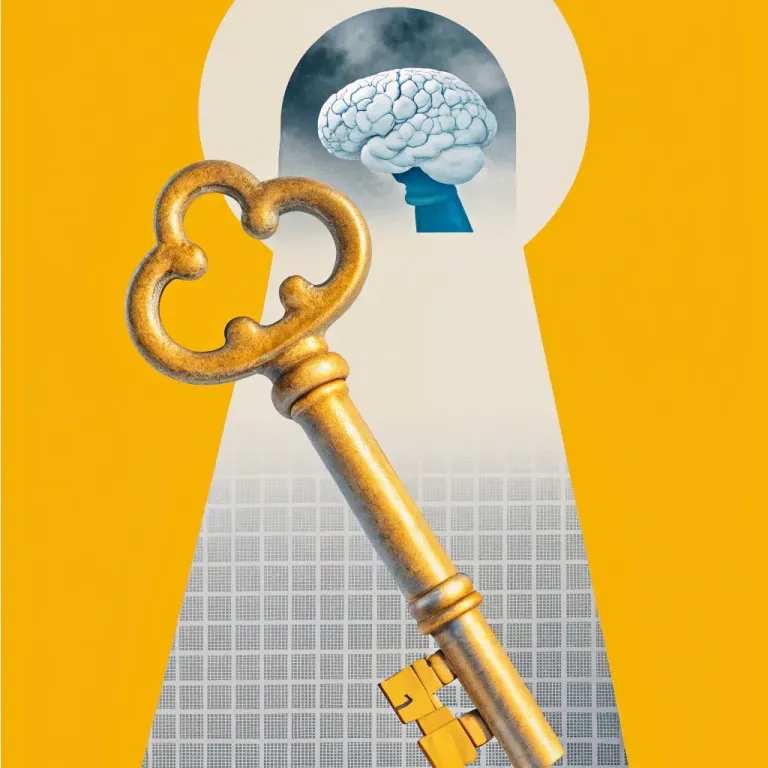
Good Life? Ditch the Rat Race!
Podcast by Beta You with Alex and Michelle
52 Surprising Shortcuts to Happiness, Wealth, and Success
Introduction
Part 1
Alex: Hey everyone, welcome back! Today, we're tackling a big one: What does it “really” take to live a good life? And I'm not talking about just getting by, but a life that's genuinely fulfilling, meaningful, maybe even a little joyful. Michelle: Yeah, because let's face it, most days feel like a frantic scramble, right? We're scrolling through Instagram, convinced everyone else has life figured out while we're just trying to decide if oat milk is the answer to all our problems. Alex: Right? But what if the key isn't about doing more, or chasing the next shiny object, but about shifting how we think? That's the core idea behind Rolf Dobelli's The Art of the Good Life. It's packed with fifty-two mental tools – simple, but really powerful – to help us navigate life's craziness. Michelle: Exactly! It's not just some generic self-help stuff either. He pulls from philosophy, psychology, even investing. And Dobelli doesn't pull any punches. He's straight up about how much luck, self-awareness, and focus matter. Maybe even more so than just hustling harder or following every productivity trend out there. Alex: Exactly, and so today we're highlighting some of the best ideas from the book, and we're organizing it around five key themes. First, we're going to talk about building mental toughness, making mind a fortress. Then, we'll look at recognizing the role of luck in our lives. Michelle: Seriously, how does understanding luck impact happiness? Alex: It's huge, right? After that, we're going to get into balancing purpose and just enjoying life. How do you have both? And of course, we can't forget about emotions because who hasn't been derailed by a sudden emotional storm? Michelle: Ugh, too real. Alex: Then finally, we're going to talk about redefining success. Stop just going with what society tells you and start defining what a meaningful life looks like for you. It's time to paint your own picture. Michelle: So, whether you're searching for answers to the big questions or just need a mental shortcut to get through the day, stick around. Let's dive into the art, and maybe even a little of the science, of the good life, shall we?
Mental Frameworks for Resilience
Part 2
Alex: So, Michelle, diving into these mental frameworks for resilience, it's amazing how someone like Dobelli pulls from seemingly unrelated fields—Stoicism, modern psychology, even value investing—to build a toolkit for stability and rational decisions. It’s like constructing a mental fortress, brick by brick, right? Michelle: Totally. Or maybe a series of clever traps to outwit life’s curveballs—depends on how cynical we’re feeling today. But seriously, those three fields? Why those? Stoicism teaches us to stay calm in a crisis. Psychology points out how flawed our thinking can be. And value investing? That feels more about the stock market than our personal wellbeing. How do they all connect? Alex: Excellent question! Let's break it down. First, Stoicism. It's all about internal control. Focus on what you can influence, let go of the rest. Think of Boethius. Classic Stoic example. Stuck in prison waiting to be executed, he writes The Consolation of Philosophy. He reflects on how unpredictable fortune is and realizes that virtues—courage, wisdom, integrity—are the only things we truly control. Everything else? Fleeting and not important to our internal peace. Michelle: Okay, but let’s be real for a second. It's easy to be philosophical when things are going smoothly, but what about when you’re actually in a dark place? Does this Stoicism thing really work when someone loses their job or gets a serious diagnosis? Alex: It's not about ignoring the difficulty but about how you see it. Sure, Boethius couldn’t control his imprisonment, but he could control how he responded. Losing a job? A Stoic would see it as a chance to re-evaluate, focus on what you can develop. That shift builds resilience because you direct your energy where you actually have some power. Michelle: Alright, Boethius gets a pass—for now. Let's switch to modern psychology. Cognitive biases, you mentioned. Sounds like a fancy way of saying, "Humans are bad at thinking." What's the solution? Alex: Basically, yes, we’re flawed thinkers. Cognitive biases are shortcuts our brains take that lead us to make errors. We tend to make quick judgments without thinking, which results in bad decisions. Psychology suggests things like journaling to separate emotion from logic. It’s a bit like Stoicism’s introspection but using a scientific approach. Michelle: Okay, let's make this practical. Say you’re stuck between a secure but boring job and a risky passion project. How would writing help? Alex: By writing it down, you force yourself to spell out your options, the pros and cons, the underlying fears. Are you holding onto a stable job because you value security, or are you scared of failing in your project? Writing brings clarity, revealing your motivations and helping you make a conscious decision. Michelle: That makes sense. But isn't there another element here? What about bouncing your thinking off someone else? I’ve found that a good debate clears my head better than just thinking alone. Alex: Absolutely. Psychology supports that. Testing your ideas against different opinions not only sharpens your thinking but builds tolerance for disagreement. In our polarized world, intellectual flexibility is essential. Michelle: So it’s the Socratic method, updated for the 21st century. I like it. Now, let's talk about value investing. This one still feels a bit out of place. How does investment advice help me handle life's unpredictable moments? Alex: Value investing is about more than stocks—it’s about rational thinking under pressure. Look at Warren Buffett: he’s all about emotional detachment and long-term planning. Isn’t that a metaphor for life? If you’re thinking of taking a high-paying but draining job, a value-investor mindset asks, "What's the actual worth here? Does this line up with my long-term values?" This stops you from making impulsive choices based on short-term benefits. Michelle: So it’s about taking the long view, not just reacting to every little blip. But here’s my problem with this. Can’t inaction be risky sometimes? Life isn’t a stock portfolio—you can’t just wait for the perfect moment. Alex: True, and that’s where good judgment comes in. It’s not about never acting, but about being thoughtful before you do. For instance, a CEO might create tiny rules, to save willpower for the bigger calls. Seem insignificant, but those energy-saving habits allow more focus on core priorities. It's like conserving resources for the moves that “really” count in investing. Michelle: So are we saying dessert is the secret enemy of good decisions? Alex: In a way, yes! It’s “really” about being conscious. Whether it’s resisting unnecessary treats or pausing before acting impulsively, These small practices create a sense of control. Michelle: Okay, let me see if I’ve got this. Stoicism builds emotional resilience by emphasizing what we can control. Psychology fights cognitive biases, using clear thinking. And investing adds the discipline of looking long-term, avoiding emotional swings. It’s like a three-layered mental shield. Alex: Exactly. Together, they provide a framework for navigating life’s ups and downs. Whether you gain strength from Boethius' calm, psychological clarity, or value investing's patience, these help us not just survive but thrive with greater awareness.
Interplay Between Luck and Success
Part 3
Alex: So, with those basics in place, we can dive into how both luck and what we do ourselves shape our lives. That's where the idea of the "ovarian lottery" comes into play. It kinda makes you rethink how much of our success is really up to us and how much is just plain chance. Michelle: The "ovarian lottery," huh? It's a real attention-grabber, isn't it? I mean, what are we really talking about here? Is it genetics, privilege, or just the randomness of life? Alex: It's a mix of all those things, actually. The core idea is this: from the moment we're born, our lives are strongly shaped by things we didn't choose. Like our genes, where we're born, our family situation, all that. It messes with this idea we have that says if you work hard you will success, It challenges meritocracy where we think success is only about hard work and talent. Michelle: Yeah, meritocracy is a nice story we tell ourselves. You know, "If I just work harder, I'll get there," or "They must have earned it." It's easier to think we're in control, when a lot of times, we're just passengers in a car someone else built. Alex: Precisely. The text bring up a simple example, think of identical twins—equally talented, equally hardworking. One grows up in a developed country with great schools and healthcare. The other grows up in a war zone where even water is hard to get. Even if they try just as hard, their lives will probably be “really” different. It's not about what they deserve; it's about the hand they're dealt. Michelle: Okay, I see that. But does this mean effort doesn't matter? Because if everything is just luck, why even bother trying? It feels kind of like saying, "What's the point?" Alex: Not at all! The text doesn't say hard work and talent are useless, just that they work within the limits set by luck. Think of it like planting a seed. You can have the best seed, but the soil it's in “really” matters. Effort is important, but it's gotta work with the environment that luck gives us. Michelle: Right. So what about the systems that make the ovarian lottery even more unfair? How do we deal with those? Alex: Exactly, and it doesn’t hold back on the tough parts of systemic issues. If you're born into a place with good schools, healthcare, and job opportunities, you're starting way ahead. While some people feel like they are running on a treadmill, they put in so much effort, but the system keeps pushing them back. That's why fixing those systemic issues is super important if we want to be fair. Michelle: I like the treadmill idea. But when we forget about these outside factors, it can lead to some pretty bad ideas about why people succeed or fail, right? Alex: Absolutely! The text focuses on ignoring luck. Ignoring luck makes privileged people feel like they deserve everything they have and that they did it all themselves. Then, the people who struggle get labeled as lazy or unambitious, which isn't fair. Even worse, it makes people unsympathetic. If you think success is all about effort, you won't support things like public healthcare or better schools because you don't see the problems others are facing. Michelle: Empathy is a word we “really” need to think about when we’re considering success. So, are you saying that seeing luck's role not only humbles the lucky ones, but also helps everyone understand each other better? Alex: Exactly. It changes how we see things, from "I'm better because I succeeded" to "I had advantages, and I want to help make things fairer." That humility helps us be more compassionate, which leads to real action. Like helping someone out, pushing for better policies, or just being aware of what others are going through. Michelle: That's great—but also kind of idealistic. People don't “really” want to think their achievements aren't all their own doing. So how do we get people to buy into this idea? Alex: It often starts with something simple: gratitude. When you “really” think about your own life, asking yourself, "What advantages did I have?"—like family support, good education, or even just good health—it makes you rethink that whole "I did it all myself" story. And here's the surprising thing: Gratitude doesn't take away from your hard work; it just helps you see how it fits into the bigger picture. Michelle: And do you think gratitude ever turns into real action? Acknowledging privilege is great, but what about actually making things more equal? Alex: That's where redistribution comes in—not just money, but opportunities. Working to make sure everyone has equal access to education or healthcare tackles those systemic inequalities head-on. On a personal level, mentoring someone or offering job opportunities can make a big difference. It's not about feeling guilty; it's about using the luck we've had to create better outcomes for others. Michelle: I like that—using instead of guilt. But before we finish up, what about something that seems backwards? Recognizing luck could make people feel helpless, but the text suggests it actually makes us more resilient and happy. How does that work? Alex: It sounds weird, but when you accept that you can't control everything, it takes the pressure off to succeed no matter what. You focus on what you can control, like your effort and your values and you stop trying to control everything. Recognizing luck makes you humble, and that actually makes you more content. Michelle: So, admitting luck isn’t about giving up; it’s about understanding what success “really” means to begin with. Alex: Exactly. It's about balancing effort with the reality of chance, and using that understanding to grow as a person and care for others. When we view success as a mix of effort and circumstance, that’s when we “really” figure out what “a good life” truly means.
Approaches to Happiness
Part 4
Alex: So, now that we have a better handle on how luck and effort dance together in our lives, it naturally brings us to the big question: How do we actually build happiness, no matter what life throws our way? Michelle: Alright, Alex, spill the beans. Is it about creating some kind of perfectly peaceful bubble for ourselves? Or is it more about toughing it out, you know, pushing through with grit and determination? Alex: It’s a mix of both, really. Dobelli suggests balancing two seemingly opposite ideas about happiness: hedonism and eudaimonia. At first, they might seem like total opposites – fleeting pleasures versus long-term fulfillment. But together, they give us a solid way to think about happiness that's both practical and meaningful. Michelle: Hedonism and eudaimonia—sounds like a heavyweight philosophical boxing match. So, who wins the title? Alex: It's not a competition! Think of them as tools in your happiness toolbox. Hedonism is about enjoying those small, delightful moments. You know, the kind of joys that make life worth living right now. Picture treating yourself to an amazing meal after a crazy day. Pure indulgence, instant satisfaction, but yeah, it fades. Eudaimonia, on the other hand, is about long-term fulfillment – Aristotle’s idea of "human flourishing." It's the happiness that comes from living by your values and chasing meaningful goals. Think about volunteering or mentoring – you get joy, sure, but also a sense of purpose. Michelle: Okay, so one's the instant gratification, and the other's the delayed kind. But can't chasing purely pleasure—all those hedonistic delights—feel a bit... empty after a while? Like a sugar rush that doesn't actually nourish you? Alex: Exactly! And that's the danger of focusing only on fleeting pleasures. You can end up feeling like you’re running in circles, never really satisfied. But the opposite is true too. If you go all-in on eudaimonia and only focus on doing things with a purpose, you could burn out. Like the workaholic who pushes themselves too hard, never taking a breather to just enjoy life. Michelle: So… is the secret just doing everything in moderation? That feels a bit like sitting on the fence. How do you actually juggle these two? Alex: I think it’s more about integrating them, not compromising. Letting pleasure and purpose work together, not against each other. Imagine finishing this big project at work – a eudaimonic win – and then celebrating with a glass of wine, or your favorite dessert. Or even taking a vacation. Sure, it's a hedonistic escape, but if it helps you reconnect with loved ones or recharge for new challenges, it has a purpose too. Michelle: So it's not about picking a side, but weaving them together. Like layering flavors in cooking—you need both sweet and savory to make it truly satisfying. Alex: That's a fantastic way to put it, Michelle. Dobelli's not saying you have to rigidly assign one philosophy to certain parts of your life—it's more fluid than that. It's about spotting those moments where they naturally come together. It’s not about denying yourself pleasure, or sacrificing joy for ambition. It’s about aligning them as much as possible to create a well-rounded sense of happiness. Michelle: Okay, I'm buying the balance idea. But let's dive into one of Dobelli's more surprising happiness boosters: mental subtraction. Now, that sounds like some kind of sad math problem waiting to happen, so tell me about this one. Alex: Mental subtraction is a “really” interesting and surprisingly powerful technique. Instead of zeroing in on what you have, which can make you take things for granted, it flips the script. You imagine life without something you really value: your health, your relationships, even your job. It's like a thought experiment about loss that makes you appreciate what you have now. Imagining life without something precious reminds you of just how important it is. Michelle: Hang on – that sounds a bit… gloomy. Doesn't thinking about "what could go wrong" just unleash a flood of anxiety and negativity? Alex: Not at all. It’s not about getting caught up in worst-case scenarios, it’s about adjusting your perspective to foster gratitude. Psychologist Dan Gilbert talks about how we adapt to both good and bad situations so quickly. That’s why mental subtraction works. By imagining a world where you never met your best friend, or lost a job you once loved, you rekindle your appreciation for what you have right now. Michelle: So, you're saying if I imagine a world where my favorite coffee shop vanishes—taking all my morning lattes with it—I'll suddenly be thankful for every future cup? Alex: Exactly! And it goes for bigger stuff too. One study Dobelli mentions asked people to think about their relationships as if key people had never been in their lives. Those who did the mental subtraction reported way more gratitude and happiness than those who simply made lists of what they were grateful for. It's a fresh perspective that shakes you out of complacency. Michelle: Interesting. But how do we actually use this without turning into a downer? I don't want to spend my mornings wallowing in worst-case scenarios. Alex: That’s the beauty of it – it doesn’t have to take over your thoughts. Think of it as a tool you use selectively, like adding spices to a dish. For example, if you’re feeling restless or unfulfilled at work, pause for a moment and really imagine what being unemployed would be like. Or, if you're arguing with someone you love, stop and consider what life would be like without them. These visualizations only need a few minutes, but the impact can last. Michelle: And it sounds like it could help us rethink comparisons—something we all do. Like bronze medalists versus silver medalists. The bronze winner is thinking, "At least I got a medal," and the silver medalist is thinking, "I was so close to gold!" Alex: Exactly. The bronze medalist focuses on what they gained, while the silver medalist is stuck on what they didn’t get. Mental subtraction encourages us to adopt the bronze-medalist mindset—focusing on what we could have lost instead of dwelling on disappointing comparisons. It shifts your mindset from “Why didn’t I get more?” to “How lucky am I to have this?” Michelle: Okay, that's a perspective I can get behind. It's not about adding more happiness, it's about appreciating what's already there just by looking at it differently. Alex: Exactly. And when you combine that perspective with the balance of hedonism and eudaimonia, these tools give us a guide not just for experiencing happiness, but for actively building it—creating a life that's both meaningful and filled with truly enjoyable moments.
Managing Emotions and Overcoming Distractions
Part 5
Alex: Managing happiness is crucial, but “really” getting good at it means dealing with the emotions and distractions that can throw us off course. Today, we’re tackling two big challenges: handling tricky emotions like envy and self-pity, and sidestepping distractions, especially the focusing illusion. These strategies should help us move from managing our inner feelings to understanding how our perspectives affect our focus on a good life. Michelle: Sounds like a big task, Alex. From envy to self-pity and even tricks our minds play on us, we’re diving into the emotional minefield of daily life. Let's kick off with envy – it's that thing nobody owns up to but everyone feels, right? What's Dobelli's take on this green-eyed monster? Alex: Well, Dobelli says envy mostly comes from comparing ourselves to others. And, you know, modern life – hello, social media – makes that comparison game way too easy. We're scrolling through everyone's highlight reels, only seeing their best moments, which makes us super aware of what we think we're missing. But here's the interesting part: the cure for envy is often just a change in how we look at things. Michelle: Ah, here it comes. So, is this where we get the classic "count your blessings" advice? Look, it's not wrong, but it doesn’t always hit home when you're “really” in the thick of feeling envious. Alex: It’s actually a bit more subtle. Dobelli talks about this cool study of Olympic medalists: bronze medalists are often happier than silver medalists! The silver medalists are kicking themselves for almost getting gold, while the bronze medalists are just thrilled to have medaled. It's all about perspective, not the actual situation, that makes the difference. The key is switching your focus from what you don't have to what you do. Michelle: Got it, so it’s about developing that bronze-medal mentality. But, let’s be real, changing our perspective isn’t like flipping a light switch. How do you think people can actually make that shift? Alex: Dobelli gives some practical tips. A big one is cutting down on the things that trigger envy. Spending less time on social media, or choosing to hang out with people who inspire you instead of making you feel competitive, can “really” make a difference. And taking some time to reflect – like writing down your achievements and how you’ve grown – helps ground you in your own journey, rather than getting caught up in everyone else's highlight reel. Michelle: Okay, but someone listening might be thinking, "Isn't comparing yourself useful sometimes? Shouldn't you look at others to measure success or progress?" Alex: There's definitely some value in benchmarking, but it's a fine line. The goal is to get inspired, not to obsess. Like, seeing someone else's fitness progress might motivate you to adopt healthier habits, but if you're just fixating on how far behind you are, it turns into envy. It’s about what you intend to do with the information – are you using it to align with your own goals, or letting it dictate your self-worth? Michelle: Fair enough. Let’s switch gears from envy to its darker cousin: self-pity. Dobelli doesn’t hold back here, calling self-pity one of the most draining emotional traps. So, how do we climb out of that particular hole? Alex: Self-pity makes your world smaller, trapping you in a story of bad luck. Dobelli suggests tackling it with a bit of humor and a broader view. Take Charlie Munger’s advice – he famously joked about carrying an index card that says, “Your story has touched me deeply. Never have I heard of anyone with so many misfortunes as you.” It’s satire, of course, but it’s effective – making the drama external forces us to see how absurd we're being. Michelle: Okay, but self-pity isn’t just about being overly dramatic, right? Sometimes life “really” does deal you a bad hand. So, when the hardship is real, how do you move past feeling stuck without just ignoring the pain? Alex: Dobelli says to reframe the pain into action. Acknowledge it, yes, but don’t stay there. Like, if you’re dealing with a setback, remind yourself that life has its ups and downs, and hard times don't last forever. Then, focus on what you can do now, even if it seems small. Taking manageable steps can turn helplessness into forward motion. Michelle: Makes sense. So, it goes back to that Stoic idea we talked about before: focus on what you can control. Alex: Exactly. Reframing and taking action both shift your focus from dwelling on the misfortune to taking back control of your story. And often, just stepping back to see the bigger picture helps neutralize those feelings of being unfairly targeted by life. Michelle: Speaking of focusing – or rather, overfocusing – let’s jump into the "focusing illusion." Kahneman's idea describes how we tend to blow the importance of single things out of proportion when it comes to happiness. Dobelli seems almost a bit obsessed with this illusion. Is it “really” that common? Alex: It “really” is! And it explains so many wrong assumptions we make. Take the idea of moving to a tropical paradise like Miami. People imagine sunny beaches and endless fun, but forget that daily annoyances like traffic and work deadlines will still be there. Kahneman's research shows we put too much weight on the appealing part, like the weather, while ignoring the everyday stuff that's less exciting. Michelle: So, the dream of always being happy under sunny skies – ruined by traffic jams and office stress. Got it. So how do we avoid this trap? Are we supposed to just stop imagining a better future? Alex: Not at all! The trick isn’t to give up on dreams, but to look at the bigger picture. When you're tempted to make big changes, take the time to think about all the things that contribute to your overall happiness – relationships, purpose, daily habits. A balanced view makes sure you're not pinning your hopes on one single, overhyped thing. Michelle: And it sounds like managing your expectations helps, too. Adjusting emotionally by expecting that the initial excitement will fade? Alex: Definitely! Dobelli even suggests rating your expectations for big changes on a scale, and then subtracting two points. It sounds simple, but it helps bring those inflated hopes closer to reality and lowers the risk of disappointment later on. Michelle: Alright, so the formula seems to be: fight tunnel vision, consider everything, and remember to lower your expectations a bit. It's not just a lesson about happiness, but also about avoiding unnecessary disappointment. Alex: Exactly. Whether you’re fighting envy, pulling yourself out of self-pity, or avoiding the focusing illusion, it all comes back to consciously shifting your perspective. Taking a moment to reframe your emotions and prioritize balance helps you avoid the traps that cloud your judgment and emotional strength. Michelle: So, it’s less about getting rid of all the challenges and distractions, and more about dealing with them with a sharper, more proactive mindset. Alex: Precisely. Managing your emotions isn’t about being perfect, it’s about making intentional adjustments. When we get better at making those shifts, we create space to focus on what “really” makes our lives fulfilling. And that's emotional resilience in action.
Redefining Success and Personal Narratives
Part 6
Alex: So, with emotional clarity, we can redefine success beyond societal pressures. That leads to a really crucial question: How do we ditch those rigid, competitive definitions of success that society shoves at us and instead, you know, develop personal goals that actually mean something to “us”? Michelle: Ugh, redefining success. It's like, the ultimate millennial struggle, right? From day one, it's climb the ladder, hit the milestones, keep up with the Joneses...repeat. And the kicker is, people achieve all that stuff and still feel...empty. What's the disconnect? Alex: Exactly! We're measuring success through external stuff—wealth, status, titles—instead of, you know, how fulfilled we feel inside. That's the core issue. And Dobelli's idea of redefining success? It starts with stepping out of this crazy "arms race." Michelle: Arms race, huh? Immediately makes me think of a bunch of stressed-out college students fighting for internships they don't even want. Alex: Perfect analogy. The arms race is all about relative achievement. It's not about how well you're doing, but how much better you're doing than everyone else. Think about higher education: A bachelor's degree isn't special anymore. So people get masters, PhDs...and go deep into debt just to stay in the game. Michelle: It's like being on a treadmill trying to outrun everyone else instead of, you know, just hopping off. So, what happens when people finally get that degree or land the "dream" job? Are they happy? Alex: Not often. Because the goalpost always moves. There are always new pressures—salary, titles, prestige. It's an endless cycle where chasing external recognition just leads to burnout. Dobelli says the key is to realize when competition becomes destructive and then focus on stuff that aligns with your personal values. Michelle: Okay, that's easier said than done, right? "Focus on your values" is great, but how do you do that when society keeps dangling shiny carrots? Any examples that really made this click for you? Alex: Yeah, definitely. Think of getAbstract, a company that did book summaries way before it was cool. Instead of fighting in crowded markets or chasing hype, they found a niche and stuck with it. That gave them years of success and, more importantly, satisfaction. It shows the power of specializing—choosing to step out of the rat race. Michelle: So, instead of chasing the gold everyone else is mining, you look for your own, unclaimed patch of land. But isn't that riskier? How do you balance playing it safe with following your own path? Alex: It feels riskier because it's not what everyone else is doing. But in reality, it actually reduces burnout. Constantly check whether your goals match your values, instead of just external standards. That keeps you from getting caught up in pointless competition. It's not 100% safe, but it's a lot more rewarding in the long run. Michelle: Fair enough. Let's switch gears and talk about reputation. Dobelli has some strong opinions about how we let people-pleasing control us. How do we escape this "prison of a good reputation?" Alex: It starts with realizing that always trying to look perfect is limiting and suffocating. Back in the day, reputation was crucial for survival—we needed trust for resources. But now, it's gotten out of control, fueled by social media. Dobelli talks about Bob Dylan and Grigori Perelman. They both rejected public validation to follow their own paths. Michelle: Dylan and Perelman? Talk about an odd couple! We have a music icon who constantly changed his sound, despite the fans hating on him, and a mathematician who turned down a boatload of awards. What's the link? Alex: They both prioritized inner goals over public approval. Dylan got slammed every time he switched things up—folk fans went nuts when he went electric. But he stuck with his vision. Perelman didn't care about fame after solving the Poincaré Conjecture. He was all about the intellectual challenge, not the recognition. Michelle: So, basically, they said, "Forget the world; I'm doing me." But can we really ignore external validation completely? Reputation still matters, right? Alex: It's not about ignoring your reputation entirely. It's about shifting the validation source inward. Dobelli says to operate by an internal "scorecard." Ask: "Are my choices aligned with my values?" If yes, then outside opinions don't sting as much. And relationships based on authenticity will reinforce that inner strength. Michelle: But self-validation can lead to self-delusion, right? How do we stay true to ourselves without going into "I don't care what anyone thinks" territory? Alex: By having meaningful connections. Surround yourself with people who value you for who you are. Then you've got a support system that keeps you grounded when you swing too far. It's a balance—listening to trusted voices while sticking to your own values. And those relationships protect you from the craziness of public opinion. Michelle: I see the wisdom there. Now, let's talk reinvention, another tool Dobelli mentions. He says our personal stories can keep us stuck. How do we break free? Alex: Think of your personal stories as clay, not concrete. There's Paul of Tarsus. He went from persecuting Christians to being one of their biggest supporters. That shows how powerful it can be to rethink and rewrite your story. It lets you grow, instead of being stuck. Michelle: So what stops people from reinventing? Fear? Loving what's “safe”? Alex: Both. Fear of judgment, and being comfy with what we know. Dobelli suggests experimenting—try new roles, pursue new interests. Accountants might take a painting class. Introverts might try public speaking. These small changes loosen up those rigid identities and open you up to new possibilities. Michelle: It doesn't have to be this dramatic transformation, right? A small tweak—changing your narrative, how you see yourself—can be enough to change things. Alex: Exactly. The point isn't to nuke your old life, but to stay dynamic and open. Rewriting your story creates a fuller picture of who you are. Michelle: Okay, last question: This "small meaning of life" Dobelli talks about, what's that about? Alex: He's saying that the "grand meaning of life" is hard to find, but we can still be fulfilled through smaller, real goals—relationships, routines, helping our communities. These are easier to reach and just as rewarding. Michelle: Instead of asking the universe big existential questions, we build a life we actually like, day by day? Alex: Exactly! It's about clarity—setting achievable goals, building purpose bit by bit. Obsessing over "the big meaning" can freeze us, but these small, chosen meanings add up to a fulfilling life. Michelle: A mosaic of smaller meanings. I like that. Maybe success isn't conquering the world, but actually learning to fully live in it. Alex: Well said, Michelle. By redefining success, avoiding competition, and reshaping our stories, we can create lives that feel uniquely and authentically ours.
Conclusion
Part 7
Alex: Okay, so to recap, we've “really” covered a lot of ground today, haven't we? We talked about building that mental toughness using Stoicism, psychology, and even value investing. We also looked at how luck and effort work together, or sometimes against each other, in our lives. And then there were the happiness strategies – finding that sweet spot between those instant pleasures and a deeper sense of purpose. Oh, and how changing our perspective using things like mental subtraction can boost our gratitude. Michelle: Right, and let's not forget those pesky things like envy, self-pity, and those endless distractions that always seem to throw us off course. We also dug into what it “really” means to be successful and how to jump off that never-ending treadmill of expectations and create our own stories as we evolve. Essentially, it’s about rethinking where we put our energy and lining up with what’s “really” important to us. Alex: Precisely, Michelle! And here’s the big takeaway I want everyone to remember: Living well isn’t about controlling everything around you—because let's face it, you can't! It’s about controlling how you react to things. It means living a life that shows what you truly believe in, being humble about your efforts, and “really” enjoying both the big goals and the present moment. Michelle: Okay, I’m going to throw in one more challenge. Pick just one thing we talked about today—maybe it’s that mental subtraction trick, or reframing envy, or even just rethinking what "success" means—and actually try it out. See if it works in your life. Because the real magic happens when you put these ideas into practice. Alex: Exactly! Because living a good life isn't just some abstract idea—it's a skill you develop. And you already have all the tools you need. So, thanks for being with us on this journey. We'll catch you all next time!
